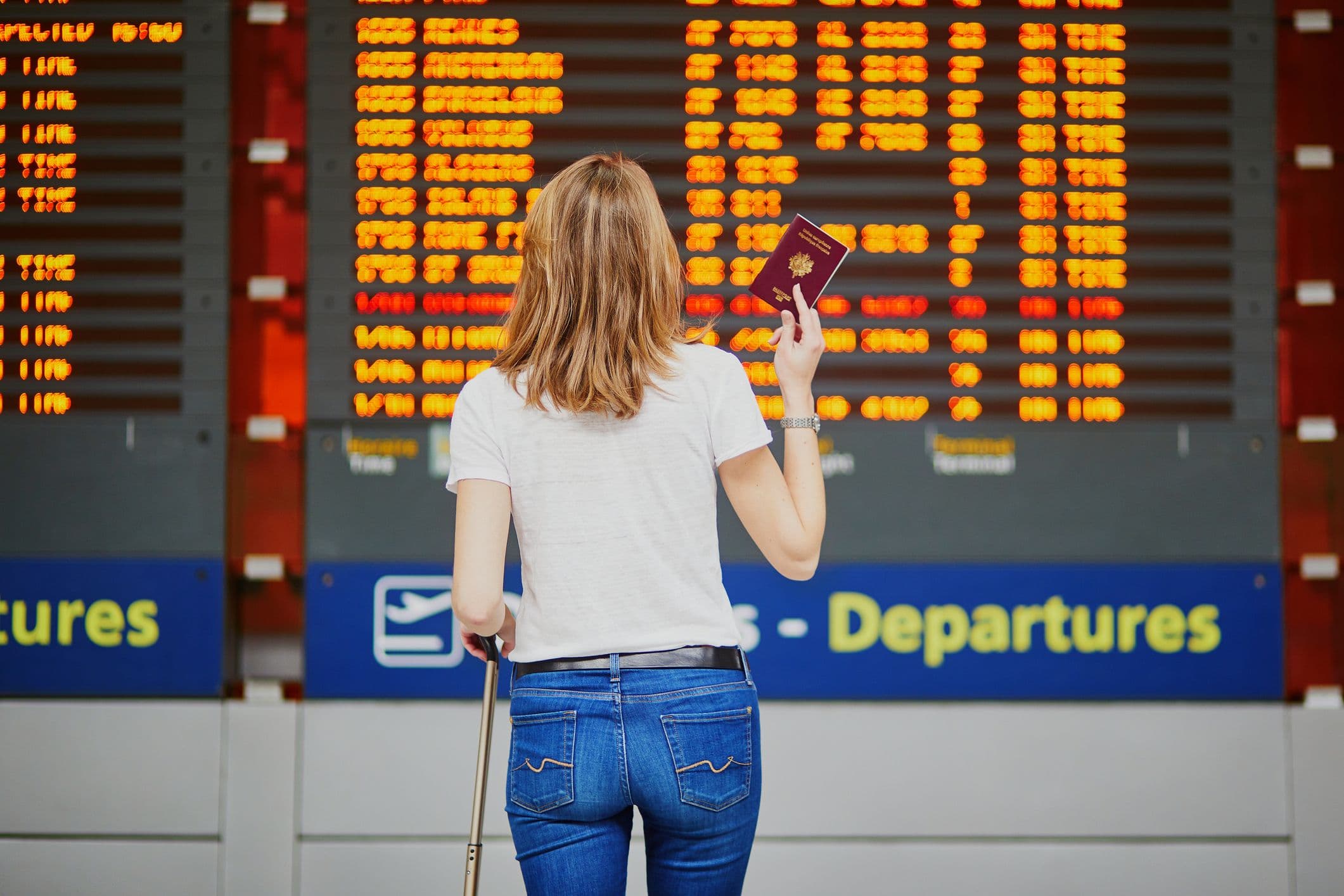
Flight delays and cancellations are among the most frustrating parts of traveling — but what if you could actually get paid for them?
If you’ve ever experienced them while flying to, from, or within Europe, you may be entitled to compensation under a regulation known as EU261.
Many travelers don’t realize this rule exists, let alone how much it can benefit them. Here’s what you need to know.
What is EU261, and who's covered?
EU261 is a European Union law that protects airline passengers in the event of flight disruptions. Compared to the United States, the EU offers better protection for all travelers — not just EU residents — with a clear set of rules when your flight is delayed or canceled.
The regulation applies to:
- Flights departing from any EU country (plus Iceland, Norway, and Switzerland), regardless of the airline.
- Flights arriving in the EU on an EU-based airline (if your flight is not an EU carrier, then you aren't covered).
When are you eligible for compensation?

The EU261 rule applies to flight disruptions that are within the airline's control. This includes scenarios such as:
- Mechanical issues
- Staffing problems
- Operational mismanagement
However, situations outside of their control, such as severe weather, air traffic control strikes, or security risks, do not require airlines to pay compensation.
How much compensation can you receive?
The compensation you're entitled to depends on the length of your flight and the duration of the delay or cancellation. Here’s how the law breaks down compensation, and it’s refreshingly straightforward:
- Flights 1,500 km or less: €250 for delays of 3+ hours.
- Flights within the EU over 1,500 km and all other flights between 1,500–3,500 km: €400 for delays of 3+ hours.
- Flights 3,500 km or more: €600 for delays of 4+ hours.
However, if you accept a new flight option, the compensation may be reduced by half depending on how many hours after your initial itinerary you arrive at your destination.
In addition to financial compensation, EU261 requires airlines to provide other services during the delay, known as the "Right to Care" benefit. This includes meals and refreshments, as well as hotel accommodations and transportation to and from the airport if an overnight stay is necessary. The level of care you receive depends on both the length of the delay and the distance of your flight.
This gives travelers clarity on what they’re owed — and assurance they’ll be cared for when delays are the airline’s fault.
How to claim EU261 compensation
Fortunately, filing for compensation isn't very complicated. Here are the steps you'll want to take:
- Keep all documentation: Save your boarding pass, tickets, receipts, and any communication from the airline about the delay or cancellation. Ideally, you'll want to request a flight verification letter at the airport, and if not, then request one from the airline's "contact us" feature.
- File a claim: Once you have all your documents, submit a claim directly with the airline. Many airlines (especially those that are operated out of the EU) have a dedicated EU261 form on their website. For other airlines, make sure to always reference the EU Regulation 261/2004 directly.
- Escalate your request: If the airline doesn't respond or refuses your claim, you can escalate your claim to the National Enforcement Body (NEB) in the EU country where the disruption occurred.
- Use a third-party service: If the airline denies your claim or you simply don't want the hassle, you can use a third-party provider to file on your behalf. There's no upfront cost, but they will take a commission of the payout you receive.
The amount of time you have to file your claim also depends on the country the airline operates out of, with most countries falling within the 2- to 6-year mark. So if you're just realizing you previously experienced a flight issue that most likely falls within this EU261 ruling, there might still be time to file a claim.
My real-life example: A Portugal flight cancellation
In 2019, I experienced firsthand just how valuable EU261 can be. I was in Portugal, preparing to fly home, when I woke up to an email informing me that my flight had been canceled and rescheduled for the following day. Luckily, my travel plans were flexible, and this unexpected extension actually worked in my favor.
When I called the airline, I was told the cancellation was due to a mechanical issue. The next day at the airport, I requested a flight verification letter as paper documentation to make the claims process much smoother. However, you can also email the airline after your trip to request the same documentation.
Once I returned home, I submitted a claim directly with Delta Air Lines. In about a month, I had a check in the mail for the equivalent of €2,400, since there were four of us traveling.
Best of all, I had booked the round-trip flight with Delta miles, so I truly came out ahead — the compensation not only covered my out-of-pocket trip costs, but actually left me with a surplus to use for my next vacation.
What started as an inconvenience ended up being a huge reminder of how valuable EU261 can be when you know how to use it.
Why EU261 is huge for travelers
EU261 provides peace of mind that your rights are protected when things go wrong. With compensation amounts ranging up to €600 per passenger, the regulation can significantly offset the frustration and cost of a ruined travel day. It also holds airlines accountable — something that U.S. travelers may not be accustomed to.
As my Portugal experience shows, knowing your rights — and acting on them — can make a canceled flight worth thousands of euros.
